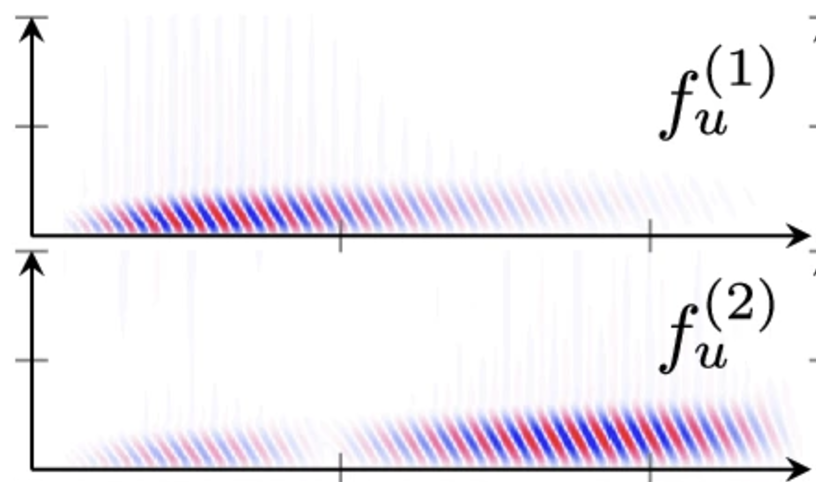 This package contains a MATLAB tool for analyzing 2D compressible and incompressible flows. The code was designed to be user-friendly, with high-level functions for mesh creation, imposing boundary conditions, etc, reducing the necessary time for setting up a new analysis and the opportunity for coding errors. The code is capable of performing temporal/global stability analysis, spatial/temporal-spatial stability analysis, and resolvent analysis. The code uses finite difference schemes to construct sparse matrices representing the linearized compressible Navier-Stokes operator. It uses iterative methods to obtain eigenvalues and vectors, when performing stability analysis, and the leading gains and forcing/response modes, when performing resolvent analysis.
This package contains a MATLAB tool for analyzing 2D compressible and incompressible flows. The code was designed to be user-friendly, with high-level functions for mesh creation, imposing boundary conditions, etc, reducing the necessary time for setting up a new analysis and the opportunity for coding errors. The code is capable of performing temporal/global stability analysis, spatial/temporal-spatial stability analysis, and resolvent analysis. The code uses finite difference schemes to construct sparse matrices representing the linearized compressible Navier-Stokes operator. It uses iterative methods to obtain eigenvalues and vectors, when performing stability analysis, and the leading gains and forcing/response modes, when performing resolvent analysis.
Download
Code and examples from MATLAB Central File Exchange![]()
Literature
-
![[PDF]](https://flowphysics.ucsd.edu/wp-content/plugins/papercite/img/pdf.png)
![[DOI]](https://flowphysics.ucsd.edu/wp-content/plugins/papercite/img/external.png) Martini, E. and O. T. Schmidt. “Linstab2d: stability and resolvent analysis of compressible viscous flows in matlab.” Theoretical and computational fluid dynamics 38.5 (2024): 665–685.
Martini, E. and O. T. Schmidt. “Linstab2d: stability and resolvent analysis of compressible viscous flows in matlab.” Theoretical and computational fluid dynamics 38.5 (2024): 665–685.
[Bibtex]@Article{martinischmidt_2024_tcfd, author = {Martini, E. and Schmidt, O. T.}, journal = {Theoretical and Computational Fluid Dynamics}, title = {Linstab2D: stability and resolvent analysis of compressible viscous flows in MATLAB}, year = {2024}, number = {5}, pages = {665--685}, volume = {38}, abstract = {We present LinStab2D, an easy-to-use linear stability analysis MATLAB tool capable of handling complex domains, performing temporal and spatial linear stability, and resolvent analysis. We present the theoretical foundations of the code, including the linear stability and resolvent analysis frameworks, finite differences discretization schemes, and the Floquet ansatz. These concepts are explored in five different examples, highlighting and illustrating the different code capabilities, including mesh masking, mapping, imposition of boundary constraints, and the analysis of periodic flows using Cartesian or axisymmetric coordinates. These examples were constructed to be a departure point for studying other flows.}, bdsk-url-1 = {https://doi.org/10.1007/s00162-024-00706-0}, date = {2024/10/01}, date-added = {2024-11-02 11:30:23 -0700}, date-modified = {2024-11-02 11:30:23 -0700}, doi = {10.1007/s00162-024-00706-0}, file = {:MartiniSchmidt_2024_TCFD.pdf:PDF}, id = {Martini2024}, isbn = {1432-2250}, url = {https://doi.org/10.1007/s00162-024-00706-0}, }